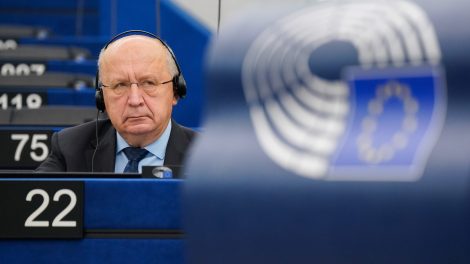In April 2023, Prime Ministers Giorgia Meloni and Rishi Sunak signed a Memorandum of Understanding on bilateral cooperation. At its heart was a pledge to drive down migration to both Italy and the United Kingdom. The move forms part of a continuing story of Italian activism to focus public attention on the issue.
Along with other matters, such as expressing support for Ukraine, the agreement heralded the creation of a strategic migration partnership between the two countries and a joint strategic security committee comprising the Italian interior minister and their British counterpart. The goal is to fight “illegal migration,” which the signatories designate as a shared threat and a challenge to security. When the two leaders met in London, PM Meloni made clear she was looking carefully at what the UK is already doing in this sensitive area.
In recent memory, Italy signed a bilateral agreement with France, and former PM Mario Draghi laid the basis for a similar arrangement with Germany. But such efforts have largely flopped. Will this deal be a case of third time lucky?
The new dialogue on migration likely fulfils several purposes, although it appears especially tailored to boost the domestic standing of the Italian government. Each country has made tackling illegal migration a priority, with the UK still aiming to fly asylum seekers to Rwanda and PM Sunak making stopping “small boat” crossings in the Channel a priority for his premiership. The Italian government has actively showcased the MoU in the domestic debate, using it to set out the concrete measures that it intends to take. The deal secured the coverage Ms Meloni would have wanted in seeking to reach traditional voters as well as the broader audience of Italian citizens. It served to demonstrate the relatively new government’s capability of establishing partnerships with relevant countries such as the UK – independently and outside the EU framework.
But the move also showed Italy going hunting for friends deliberately outside the EU on a topic of great sensitivity in Italy and of particular centrality to PM Meloni’s Brothers of Italy party. EU policy on migration forms a core part of the Italian government’s criticisms of the bloc. In contrast to her predecessor, Mr Draghi, Ms Meloni has been vocal (both when in opposition and in power) in making the case that the current framework poorly serves Italy; that its European partners have abandoned the country to face arrivals in large numbers with no adequate mechanism in place to alleviate the pressure. Her junior coalition partner, the League, and its leader Matteo Salvini also campaigned hard on this front. The UK agreement is part of an effort to be seen as taking action and looking for non-EU solutions.
This is not the only such international move made by Rome. During May’s G7 meeting in Hiroshima, Ms Meloni succeeded in placing migration on the agenda: the final communiqué included a direct reference to cooperation on international migration and fighting trafficking and smuggling. In June, a “Team Europe” visit to Tunisia made up of Ms Meloni, Dutch PM Mark Rutte, and European Commission President Ursula von der Leyen provided another platform for the Italian PM to draw attention to the issue and to push EU institutions and partners for assistance. And the EU’s Swedish presidency has echoed the language of the Italian government: “Frontline countries need our solidarity,” said the Swedish immigration minister.
Indeed, the new Council of Ministers agreement on key asylum and migration laws revamps the bloc’s migration management approach. The agreement changes the Dublin regulation; introduces forms of mandatory solidarity among member states and for countries of arrival; and strengthens cooperation with third countries through a reinforced external dimension of migration management. PM Meloni expressed her satisfaction with the new package and claimed a role in placing the topic on the table: “I am satisfied that I was able to raise the question,” she remarked.
The story is not over, however. At home, in March 2023, the government passed a new migration law that harshens measures to punish people smugglers and human traffickers, with longer sentences for those found guilty. The legislation also speeds up the expulsion procedures for illegal migrants, and the government is seeking to abolish the special protection status, which is a permit made available to asylum seekers who do not belong to the category of refugees for religious, racial, and ethnic persecution of citizen of a country at war.
The next chapters will likely see PM Meloni press for the EU new pact on migration to reflect her views of the issue: domestically, to stop migrants reaching Italian shores; at the European level, to ensure European quota sharing becomes an effective and enduring tool of migration management; and to pursue concrete cooperation with third countries.
This article first appeared on the European Council on Foreign Relations’ website and has been lightly edited.





